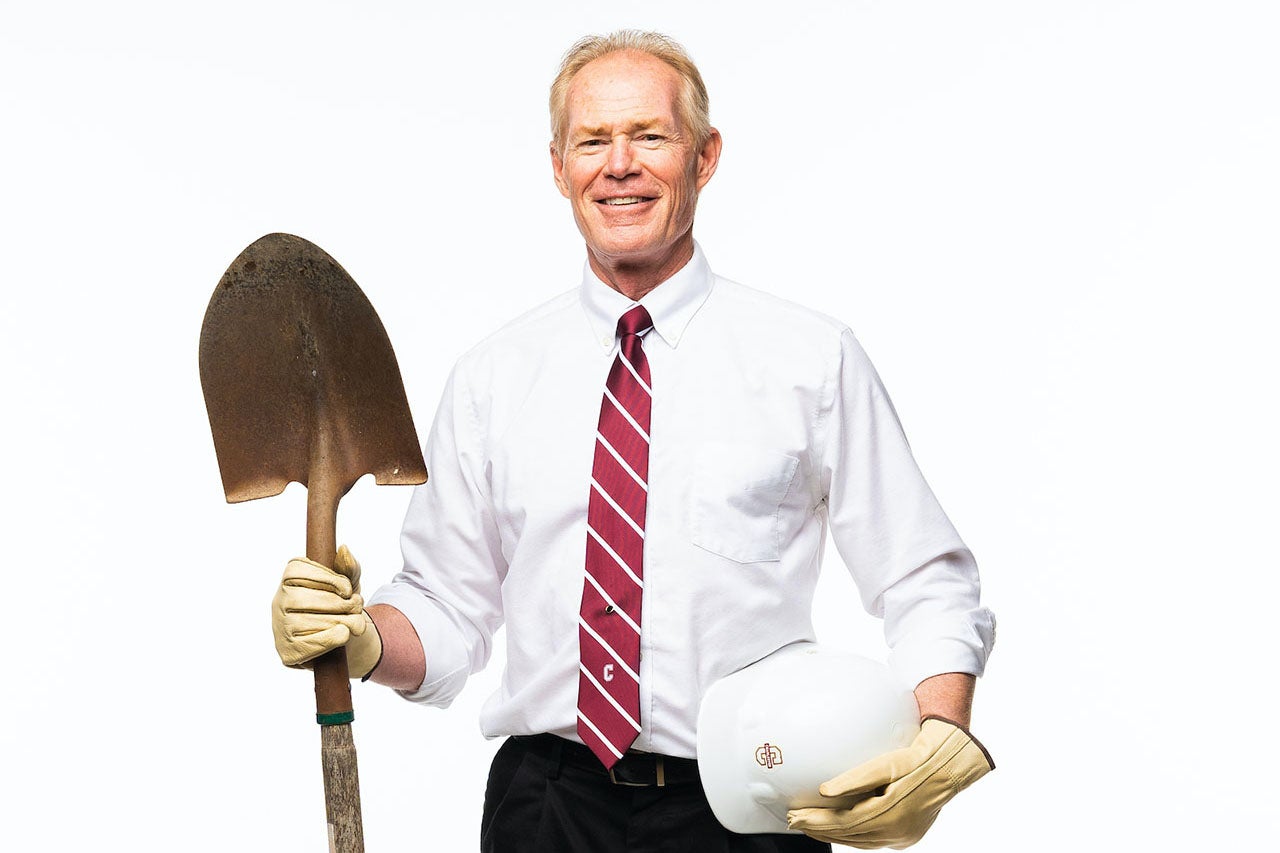How many historic buildings are on the CofC campus?
The College owns 90 historic homes and buildings constructed between 1770 and 1940.
How often are the College’s historic buildings assessed and renovated?
It is a constant process. Things naturally deteriorate, so we continuously reinvest to maintain these buildings to their full glory.
What are the challenges of maintaining centuries-old buildings?
We have the most issues with structural masonry buildings where the mortar has deteriorated or previous incorrect repairs were made. And we still come across suspected structural issues related to past earthquakes in Charleston.
What’s the most surprising thing found within the walls of a building during a renovation?
We found some hidden stencils on the walls at 74 George St. They were badly faded, but we could make out some of the colors and patterns. We also found old doors closed up inside the walls that used to lead to a room on the north side of the house that was demolished. I would be remiss not to mention the sliding barn door discovered in the Physical Plant renovation, which was likely used to move caskets from the factory once located there to the mortuary next door.
How do you make a building designed in the 18th and 19th centuries work for life in 2021?
It is important to work with the buildings, not against them. Creativity, careful design and planning allows us to integrate modern systems while remaining sensitive to the character and historic fabric that remains. The good news is historic buildings often have “balloon framing,” basically long studs that extend uninterrupted and easily allow you to run wires all the way up.
Which recent renovation of a historic building are you most proud of and why?
The Avery Research Center and the interior of the Sottile Theatre are worth mentioning – and 90 Wentworth St., a historic home for student housing, is a great example of a sensitive renovation. The building retains original heart pine flooring, wood window sashes and a beautiful two-story piazza. We were able to provide brand new bathrooms and a kitchen as well as a new HVAC system, new shutters on the front façade and a new fire alarm system.
Are there any ghost stories from crews during the renovation of a building?
Not really, but if we had any ghosts, they would likely be in the old mortuary, now divided into apartments, next door to the Physical Plant, which was originally a casket factory.

The Knox-Lesesne House and its adjoining carriage house saw a refresh over the summer.
KNOX-LESESNE HOUSE
Built in 1846, the Knox-Lesesne House at 14 Green Way is among the many historic structures on campus. The building was a private residence until the College purchased it in 1964. It served as student housing until undergoing a state-of-the-art renovation in 2018 to maximize the structure’s energy efficiency as the home of the Center for Sustainable Development.




